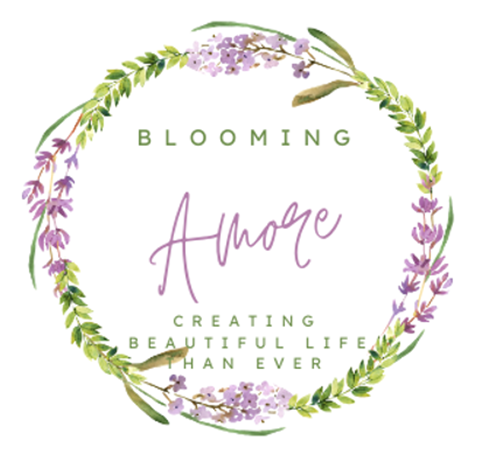Classroom assessment plays a crucial role in capturing a comprehensive understanding of students’ academic progress and facilitating their overall growth and development. Beyond simply quantifying their performance, the purpose of assessment extends far deeper. It serves as a powerful tool for educators to gather valuable data, providing insights into students’ grasp of fundamental concepts and essential standards.
By employing effective assessment strategies, teachers can glean valuable information about their students’ strengths, weaknesses, and areas of improvement. This knowledge is then used to design tailored instructional approaches that meet the diverse needs of learners, ensuring that no student is left behind in their educational journey.
Assessment offers educators a way to monitor students’ progress over time and make informed decisions to enhance their learning experience. By continually assessing their understanding, teachers can identify any gaps in comprehension and take timely interventions to bridge them. This proactive approach not only helps students stay on track but also fosters a positive learning environment that encourages growth, perseverance, and success.
Moreover, assessment serves as a means of providing constructive feedback to students, guiding them towards self-reflection and continuous improvement. Through timely and meaningful feedback, students can identify their strengths and areas for refinement, enabling them to set personal learning goals and take ownership of their education.
In addition to benefiting students, assessment also informs teachers’ instructional practices and curriculum development. It equips educators with valuable insights into the effectiveness of their teaching strategies, highlighting areas that may require adjustment or enrichment. This ongoing feedback loop ensures that teaching methods align with students’ needs and optimizes the overall learning experience.
Classroom assessment goes beyond the mere quantification of academic progress, instead serving as a dynamic process aimed at understanding and addressing the unique learning needs and potential of each student. By fostering a culture of continuous assessment and feedback, educators can empower students to reach their full potential and ensure equitable and inclusive education for all.
Black and Dylan (1998) states that instruction and formative assessment are indivisible. They emphasize that assessment refers to all activities undertaken by teachers and by their students to assess themselves that give information to be used as feedback to modify teaching and learning activities. When it is used to meet student needs, assessment is therefore concluded as formative assessment.
Researchers have conducted extensive studies on the efficacy of various assessment strategies and have consistently found that enhancing formative assessments can yield remarkable improvements in overall student achievement. By implementing a well-rounded approach to classroom assessment, educators can transform assessments into powerful tools for learning, fostering a more inclusive and enriching educational environment.
One of the key benefits of formative assessments is their ability to support low-achieving students. These assessments provide ongoing feedback and constructive guidance, allowing educators to identify areas where students may be struggling and intervene promptly. By pinpointing specific areas of weakness, educators can tailor their instruction to meet the individual needs of each student, offering targeted support and additional resources that can make a significant difference in their academic development.
Moreover, when teachers embrace a balanced approach to assessment, it shifts the focus from mere quantification of learning to meaningful and continuous progress evaluation. Instead of relying solely on high-stakes exams or final grades as a reflection of student learning, formative assessments provide real-time insights into students’ understanding, skills, and areas for improvement. This shift in perspective encourages educators to view assessment as an ongoing process, empowering them to continuously adapt their teaching strategies to address the evolving needs of their students.
By utilizing formative assessments effectively, teachers can create a more dynamic and interactive learning experience. These assessments allow for timely adjustments, promoting a deeper understanding of the subject matter and fostering metacognitive skills. Students become actively engaged participants in their own learning as they receive immediate feedback, enabling them to self-assess, reflect upon their progress, and set realistic goals for improvement.
The utilization of enhanced formative assessments has a profound impact on student achievement. By adopting a comprehensive approach to assessment, educators can empower students, facilitate personalized instruction, and foster a positive learning environment that promotes continuous growth and improvement.
Designing and implementing effective classroom assessments need skills and practice. Teachers should be open in acquiring professional development where they can improve their skills in developing high-quality classroom assessments. One best start is to begin with the standards. Assessment should be tied to a curriculum based on national academic content. Careful analysis of knowledge, skills, and sub skills are important. These should be the guiding principles of teachers in carefully analyzing their students’ performance. These are what students should be able to master.
Initially analyzing the students present knowledge and devising the formative assessment from there is helpful. Bear in mind that the learner’s involvement in the assessment process is vital to successfully measure learning.
Welcome to the extraordinary world of educational bloomers! Get ready to embark on a captivating learning journey with us. As we delve into the realm of knowledge, let’s explore fascinating subjects together. Follow me on social media to stay updated on the latest educational insights and discoveries.
From science to history, mathematics to literature, we will uncover the wonders of each field. Engage with us by sharing your thoughts and ideas in the comment section below. Your unique perspective is invaluable to our educational community.
Together, let’s expand our minds and inspire one another. Join the passionate bloomers’ movement now and let the power of education propel us to new heights!
References:
Black, P., & Wiliam, D. (1998). Inside the black box: Raising standards through classroom assessment. Phi Delta Kappan, 80(2), 139–144, 146–148. Retrieved May 18, 2014, from http://www.pdkintl.org/kappan/kbla9810.htm
Stiggins, R. (2004). New assessment beliefs for a new school mission. Phi Delta Kappan, 86(1), 22–27. Retrieved June 16. 2014, from http://www.assessmentinst.com/documents/NewBeliefs.pdf
Burns, M. (2005). Looking at how students reason. Educational Leadership, 63(3), 26–31. Retrieved November 29, 2006, from http://www.ascd.org/authors/ed_lead/el200511_burns.html





